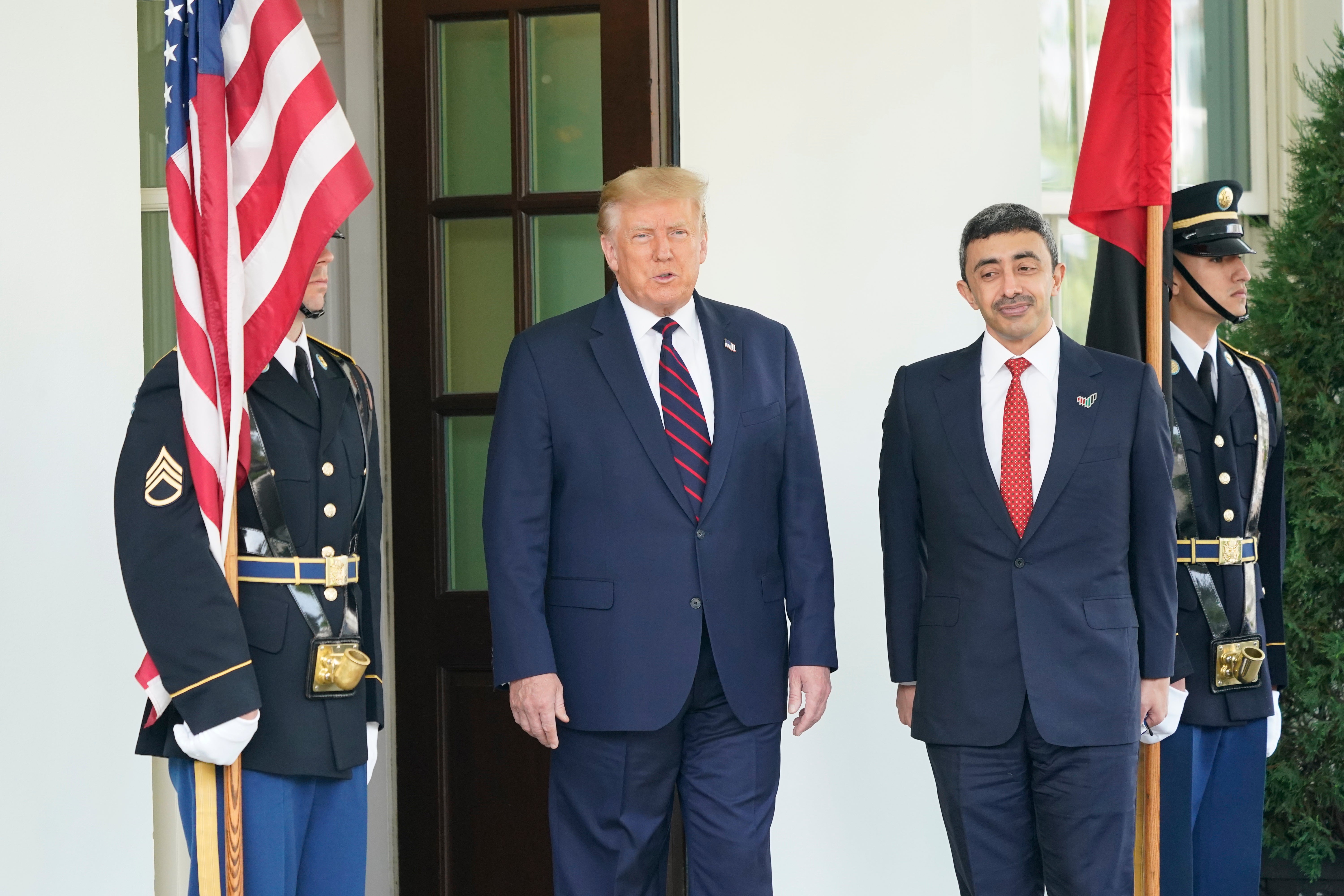Your support helps us to tell the story
From reproductive rights to climate change to Big Tech, The Independent is on the ground when the story is developing. Whether it's investigating the financials of Elon Musk's pro-Trump PAC or producing our latest documentary, 'The A Word', which shines a light on the American women fighting for reproductive rights, we know how important it is to parse out the facts from the messaging.
At such a critical moment in US history, we need reporters on the ground. Your donation allows us to keep sending journalists to speak to both sides of the story.
The Independent is trusted by Americans across the entire political spectrum. And unlike many other quality news outlets, we choose not to lock Americans out of our reporting and analysis with paywalls. We believe quality journalism should be available to everyone, paid for by those who can afford it.
Your support makes all the difference.US President Donald Trump said he would have “no problem” selling F-35 fighter jets to the United Arab Emirates, despite objections from Israel.
Speaking just hours before the Emiratis are due to sign a historic US-brokered accord with Israel, Mr Trump affirmed he would be happy to pursue the divisive arms sales.
Anwar Gargash, the UAE’s minister of state for foreign affairs, had said earlier that the UAE wanted to modernise its military, and that Tuesday so-called “Abraham Accord” dispels “any grain of doubt” about why the fighter jets should be delivered.
However, Israeli Prime Minister Benjamin Netanyahu has repeatedly said his government would oppose the sale, adding last month that the US had clarified to Israel that it will “always safeguard Israel’s qualitative edge”.
Mr Trump appeared to contradict that telling Fox News that “selling our stuff is good for our country”.
“I know the leader very well, Mohammed,” he said referencing the UAE’s de facto ruler and crown prince Mohammed Bin Zayed.
“I would have no problem in selling them the F35, I would have absolutely no problem. I view it as an asset, not a liability,” he added.
When the Fox hosts mention Israel’s reservations he added: “It is tremendous, jobs at home, you’re talking about a large number of planes."
The UAE and Gulf neighbour Bahrain are set to sign historic normalisation accords with Israel at a White House ceremony on Tuesday. Details and wording of agreements have not been made public.
But one of the thornier issues has been the relationship between the accord and this alleged US-UAE weapons sale.
Washington has refrained from Middle East arms sales that could blunt Israel’s “qualitative military edge”. This has applied to the F-35 which has been denied to Arab states, like Egypt, while Israel has bought and deployed it.
But Mr Gargash on Tuesday mentioned the purchase of F-35 jets in a potential sale which - according to media reports - could also include Reaper drones and EA-18G Growler electronic warfare planes.
"The UAE seeks like any country that takes its military seriously, to modernise its military, always, so our request for the F35 and other systems pre-dates this agreement," he told reporters in the US.
“The UAE's existing F-16 jets are now almost two decades old, and it is time to renew them,” he added.
Last month, Mr Netanyahu was firm that that the diplomatic deal with the UAE would not include a weapons sale and hinted that he had received assurances from the Trump administration that the sale would not go ahead.
“The peace agreement with the UAE does not include any clauses on the matter, and the United States clarified to Israel that it will always safeguard Israel’s qualitative edge,” he said.
His office had clarified in an accompanying statement that the Israeli prime minister “has opposed the sale of F-35 jets and other advanced weapons of any sort in the Middle East, including Arab states that make peace with the State of Israel”.
A plan for a similar sale was blocked by US congress in the past, under pressure from Israel and the Israeli lobby in Washington.
I would have no problem in selling them the F35, I would have absolutely no problem. I view it as an asset, not a liability
Mr Netanyahu is in Washington DC, alongside ministers from the UAE and Bahrain, to sign the agreement.
Mr Gargash said the country's decision to normalise ties broke a "psychological barrier" and is the way forward for the region.
He said the US-brokered deal would see Israel suspend its planned annexation of Palestinian land allowing an easier path to a two-state solution.
A strategic breakthrough is needed, he added, but "it will not happen overnight".




Join our commenting forum
Join thought-provoking conversations, follow other Independent readers and see their replies
Comments